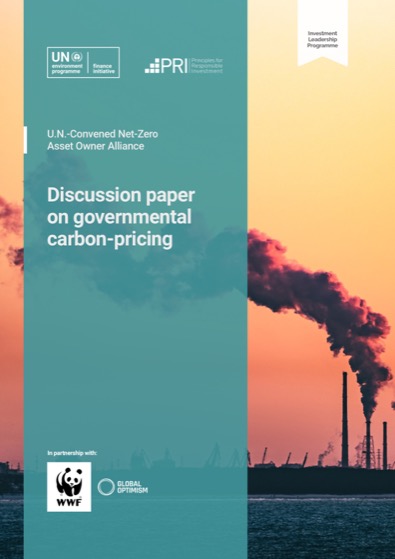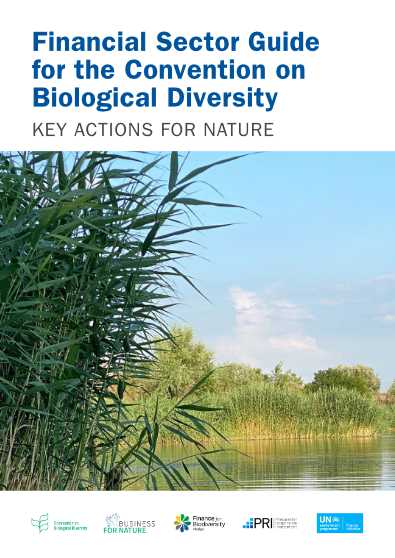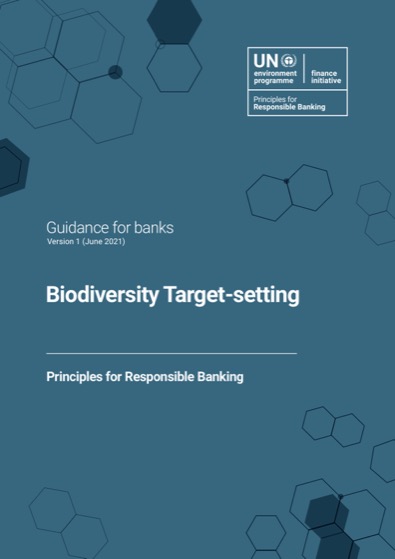
17 May 2022Events, Roundtables
POPULAR CONTENT

17 May 2022Events, Roundtables

07 March 2023Climate Change, Publications, TCFD

28 November 2022Publications, SDGs and Impact
Climate Change, Insurance, Net Zero Banking, Net Zero Insurance, News | 11 July 2021
Geneva/Venice, 11 July 2021—As the G20 gathers in Venice for its Climate Summit, eight of the world’s leading insurers and reinsurers make a historic commitment to play their part in accelerating the transition to a net-zero emissions economy, as required by the Paris Agreement.

Developed by the Natural Capital Finance Alliance (NCFA), which consists of UNEP-WCMC, UNEP FI and Global Canopy, the guide aims to take a deep dive into the ENCORE biodiversity module through a comprehensive introduction to the tool and the module, as well as thorough explanations on the purpose and usage of the module to identify and assess biodiversity-related risks and opportunities.

Asset Owner Alliance, Publications | 06 July 2021
The UN-convened Net-Zero Asset Owner Alliance recommends strengthening of current carbon-pricing instruments and regulations across global economy. Explicit mechanisms for escalating binding carbon-price floor and ceiling are detailed in this paper, delivered to G7 and G20 policymakers.

Blue Finance, Nature, News | 06 July 2021
The ocean is not just a victim of climate change, it is also a source of solutions. The transition to a sustainable “blue” economy is an opportunity to re-cast how we use, manage and protect ocean resources in a more integrated manner. Unlocking the financial sector for the sustainable blue economy allows for the potential of an environmentally and socially sustainable future that will be resilient to the impacts of climate change while providing livelihoods, food and prosperity.

Asset Owner Alliance, Climate Change, News | 06 July 2021
Today’s global carbon-pricing landscape can and should be transformed in a matter of years and pave the way for 1.5ºC-aligned…

Nature, Publications | 02 July 2021
The Financial Sector Guide for the Convention on Biological Diversity (CBD), which is geared towards all financial institutions, stakeholders and partners, aims to mobilise financial institutions to ensure a nature positive world, by fostering better understanding of nature’s importance for the financial sector, providing insight on the CBD process. The guide is the first of its kind between the CBD and partner organizations, and the financial sector.

News, SDGs and Impact | 30 June 2021
Geneva, 30 June 2021 – UNEP FI has launched two new tools for impact analysis; the Real Estate Impact Analysis…

Banking, Nature, Principles for Responsible Banking, Publications, Target Setting | 24 June 2021
The Guidance on Biodiversity Target Setting is designed for PRB signatories, allowing banks to take a systematic approach to setting and achieving biodiversity targets. The guidance presents three real-life case studies, and includes a detailed how-to guide and has been developed by 30 PRB signatories, UNEP FI, UNEP-WCMC and the Science-based Targets Network (SBTN).

Blue Finance, Nature, News | 24 June 2021
You have signed the UNEP FI Sustainable Blue Economy Finance Principles. Why did American Hellenic Hull Insurance Company take this…

Blue Finance, Nature, News | 18 June 2021
Investment in blue economy is vital for planet’s future, but the breadth of risks to ocean health pose challenges to asset owners. The ocean economy is estimated to be worth US$2.5 trillion annually, but just US$13 billion has been invested during the past ten years to support sustainability, according to an international joint academic and public institution report. If further action is not taken to tackle the effects of unsustainable use of oceans and their resources, a total of between US$200 billion-US$1 trillion will be required annually by 2100 to pay for coastal protection, relocation of people and loss of land to sea level rise.